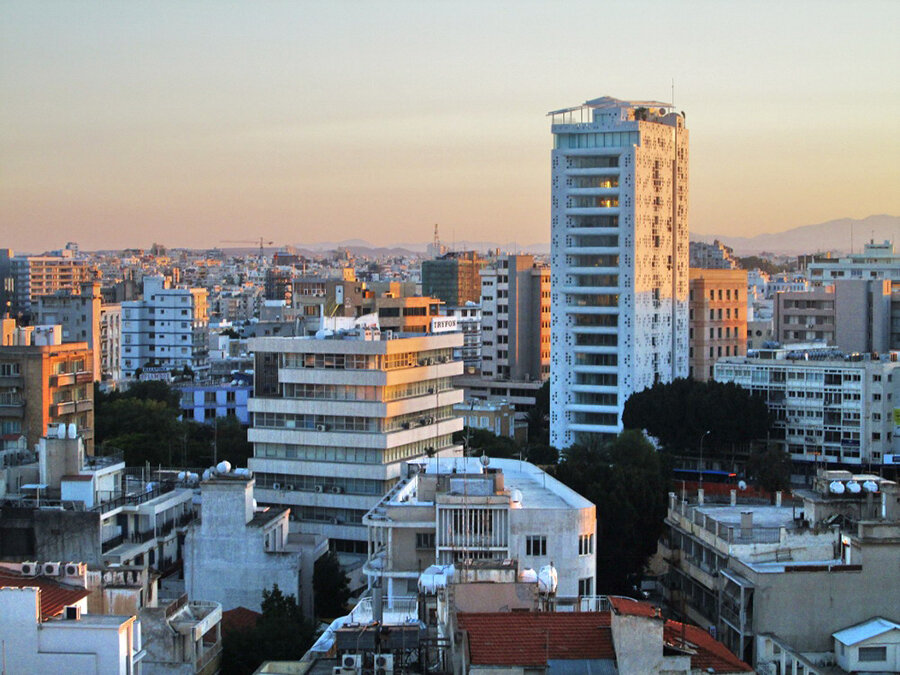Who is Buying Property in Cyprus?

The Cyprus real estate market continues to attract interest from citizens of the United Kingdom, Greece, Israel, and Russia, writes the Cyprus Property News portal, citing data from the Department of Land and Surveys. However, many experts note a decline in transactions involving foreigners overall, particularly among Russians.
According to official data provided to the House of Representatives by Interior Minister Konstantinos Ioannou, more than 37,000 properties were sold to foreign buyers—including EU and third-country nationals—between 2021 and the end of 2024. During the same period, local residents carried out over 200,000 transactions. British citizens consistently rank among the largest buyers across all regions. Russians, Israelis, Greeks, and Lebanese also hold prominent positions among foreign nationals purchasing property in the country.
The report includes a breakdown by location and the nationality of new owners.
Nicosia
Greek buyers topped the list of foreign purchasers in the capital, acquiring 1,626 properties from 2021 to 2024. British citizens followed with 1,584, while Australians ranked third with 545. Local residents continue to dominate property ownership in Nicosia, holding 98,205 properties, compared to 5,236 owned by foreigners.
Limassol
Russians led property purchases in Limassol, acquiring 2,561 properties over the same period. The British ranked second with 1,840, followed by Israeli buyers with 1,154. In total, foreigners purchased over 8,500 properties in Limassol from 2021 to 2024, while Cypriots completed 62,460 transactions.
Paphos
British buyers again ranked first in Paphos, acquiring 4,483 properties. Russians followed with 1,563, while Israelis secured third place with 1,291. In total, 28,484 local residents and over 10,000 foreigners purchased property in Paphos during the period.
Larnaca
British citizens also dominated in Larnaca, purchasing 2,743 properties. Lebanese buyers followed with 1,744, and Israelis ranked third with 1,406. Over four years, Cypriots bought 33,819 properties in Larnaca, while foreigners acquired 8,535.
Famagusta
British nationals made the most purchases in Famagusta, securing 1,182 properties. Other nationalities trailed significantly, with Greeks purchasing 165 properties and Lebanese buyers acquiring 131. Cypriots remained the primary market participants, completing 16,966 transactions, while foreigners purchased just over 2,000 properties.
The Cyprus Department of Land and Surveys reports that total housing sales increased by only 1% in 2024. Transactions with local buyers rose by 10% compared to 2023, while purchases by foreigners dropped by the same percentage.
Sales in Nicosia increased by 19%, in Famagusta by 13%, and in Larnaca by 4%. However, sales in Limassol and Paphos declined by 23% and 14%, respectively. These two locations, which had previously been the most popular among foreign investors, experienced the most significant downturns.
Sales to EU citizens fell by 3% overall, with Limassol experiencing a 13% decline and Paphos an 8% drop. Transactions with third-country nationals fell by 12% year-on-year. In contrast, Nicosia saw a 28% increase, while Famagusta and Larnaca recorded growth of 7% and 4%, respectively. Limassol saw a sharp decline of 26%, while Paphos recorded a 16% drop.
Declining Investment Attractiveness
The investment appeal of Cyprus's real estate market is declining due to high interest rates on loans, rising property prices, and geopolitical factors. Stricter immigration policies have also played a role. For example, Cyprus has continued to revoke "golden passports." At the end of 2024, another 77 individuals, including Russian and Ukrainian entrepreneurs, were stripped of their citizenship. The primary reasons cited were false information on applications, criminal records, and failure to meet naturalization conditions. The program was shut down in November 2020 following widespread allegations of money laundering and corruption. Since 2013, Cyprus has annulled 286 passports.
Additionally, Cypriot banks have periodically closed Russian accounts. In the spring and summer of 2024, Bank of Cyprus took extensive action, ceasing services for thousands of Russian clients who do not reside in the EU. The move was reportedly part of an effort to combat money laundering and comply with EU tax regulations. Around 15% of all Russians residing in Cyprus held accounts in this bank. At the end of 2022, Russian citizens had over €700 million in deposits there—6% more than the previous year.
In 2024, Hellenic Bank also began terminating accounts of Russian nationals, even those holding Cypriot documents and residing in the country. According to Associated Press, between 2014 and 2022, Cypriot banks closed 82% of Russian clients’ accounts, reducing Russian-held deposits by 76%. A total of 126,000 accounts, amounting to €43.5 billion, were shut down. The trend intensified in 2023 when Cyprus President Nikos Christodoulides declared that attracting Russian capital, including through the golden passport program, had been a mistake.
Authorities have since launched an investigation into sanctions violations. In December 2024, FBI agents arrived in Cyprus to assist in uncovering financial crimes. As a result, over six months, more than 10 major Russian companies, including TCS Group Holding and Etalon Group, exited the island. Additionally, Cyprus began blocking UnionPay cards issued by Russian banks as an alternative to Visa and MasterCard.
As a result, Cyprus has lost its appeal as an offshore financial hub for Russian citizens.








